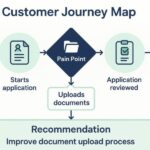Has Hartford denied a recent claim, and is guidance needed on how to proceed?
A denied claim is never good news; however, it’s important to know that such a decision can be appealed. The claim could be for long-term disability, workers’ compensation, or another type of insurance coverage.
Ultimately, an appeal provides an opportunity to present additional evidence and address any misunderstandings that may have led to the denial in the first place.
That said, an appeal involves more than just submitting a letter; it requires the proper documents, which must be well-organized and comprehensive.
1. Hartford Denial Letter
The Hartford denial is the foundation of the appeal. It outlines the specific reasons for the denial, including the policy provisions referenced in making the decision, as well as instructions for initiating the appeals process.
This crucial document allows the opportunity to address what went wrong or what was missing in the original claim, helping to resolve those issues.
The letter also provides important details about deadlines and procedural requirements for filing the appeal. This information is critical, as failing to meet the deadlines could result in losing the chance to challenge the decision.
In short, the denial letter shapes the appeal strategy and identifies areas where additional documentation or clarification may be needed.
2. Policy Documents
The insurance policy is one of the most important documents for an appeal. It outlines the terms and conditions of coverage, including eligibility requirements, benefit limitations, and exclusions.
Reviewing the policy is essential to understanding what Hartford requires for claim approval. Attention should be given to the specific definition of “disability” or other qualifying conditions, as well as any exclusions that may apply.
By understanding these details, the individual can craft an appeal that directly addresses the insurer’s reasoning. For instance, if the claim was denied due to insufficient medical evidence, the policy should be checked for specific medical proof requirements.
Being familiar with the policy helps in gathering the necessary documents to support the appeal. In short, knowing the policy thoroughly is key to preparing a comprehensive and focused appeal.
3. Medical Records
Medical records are among the most critical documents in any Hartford denial appeal, particularly for long-term disability or workers’ compensation claims.
These records should include detailed information about the diagnosis, treatment history, and any medical procedures or tests that have been performed. The documents, which clearly link the condition to the inability to work, are essential for presenting the case effectively.
Since the case relies on these records, it is important to ensure that the treatment records are up-to-date, accurate, and well-organized.
4. Reliable Physician Statements
In addition to routine medical records, well-detailed statements or letters from treating physicians can significantly strengthen the appeal. These statements should thoroughly address the condition, the degree of disability affecting the ability to work, and any prognosis for recovery.
In long-term disability cases, a physician’s opinion that aligns with the policy’s definition of “disability” is particularly persuasive. For example, if the policy defines disability as the inability to perform job duties, the doctor’s statement should explicitly confirm this.
It is important to collaborate with healthcare providers to ensure their statements are clear, specific, and consistent with the medical records being submitted.
Ultimately, a reliable physician statement can often be the key factor in overturning a denial.
5. Employment Records
Employment records demonstrate how much the medical condition has impacted the ability to perform the job.
This can be shown through the job description, performance evaluation comments, attendance records, and any workplace accommodations that were requested or needed.
For instance, if the denial was based on Hartford’s determination that the individual could continue working, this can be challenged with a job description that outlines the physical or cognitive demands required for the role.
Days off, reduced hours, and any accommodations made due to the condition further support the claimed disability.
When submitting these documents, it is crucial to ensure they are well-organized and clearly highlight the connection between the condition and the inability to work effectively.
6. Appeal Letter
The appeal letter is the formal response to Hartford’s denial and a crucial document in the appeals process. It should clearly state the intent to appeal the decision and outline the reasons why the denial was incorrect.
It is important to address each point raised in the denial letter, referencing the supporting documentation being submitted, such as medical records, physician statements, or employment records.
The tone of the appeal letter should be professional, factual, and persuasive rather than frustrated or dissatisfied.
In this way, a well-constructed appeal letter effectively ties all the evidence together to demonstrate why the original denial was flawed and why the claim should be reconsidered.
Bottomline
An appeal to Hartford for a denied claim should be well-prepared and strategically focused.
By combining six key documents—the denial letter, policy documents, medical records, physician supporting statements, employment records, and the appeal letter—a stronger foundation is created to make a compelling case for reconsideration.
Each document should be carefully organized to address specific concerns, with the evidence supporting the validity of the claim. Additionally, since the appeals process can be time-sensitive, it is important to stay vigilant about deadlines.
Proper documentation and an organized approach significantly increase the chances of overturning the denial and securing the benefits deserved.
Published by: Jon H.

















